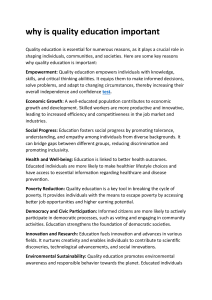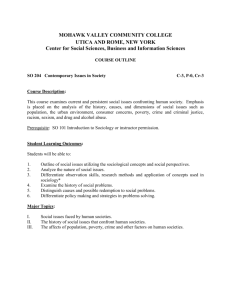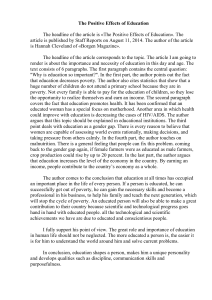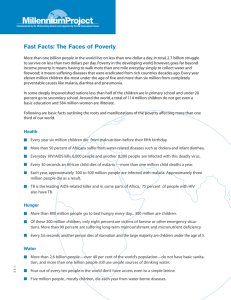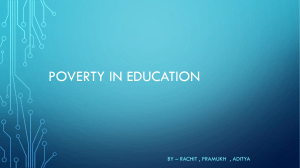Four Arguments About Poverty: Causes and Solutions
advertisement
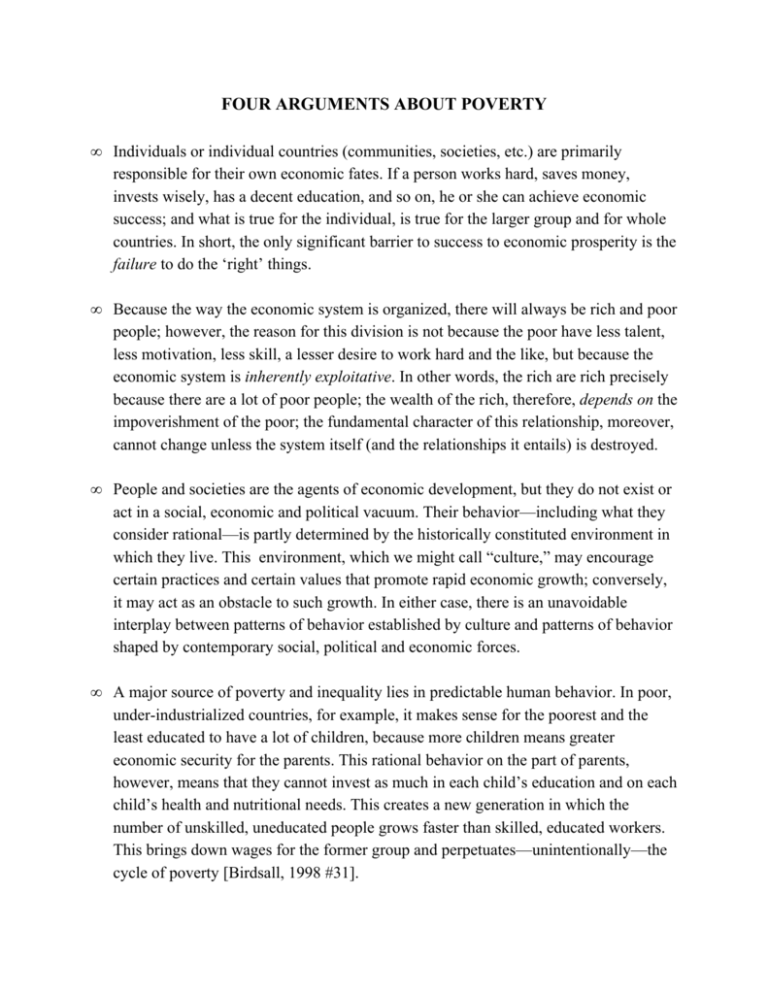
FOUR ARGUMENTS ABOUT POVERTY • Individuals or individual countries (communities, societies, etc.) are primarily responsible for their own economic fates. If a person works hard, saves money, invests wisely, has a decent education, and so on, he or she can achieve economic success; and what is true for the individual, is true for the larger group and for whole countries. In short, the only significant barrier to success to economic prosperity is the failure to do the ‘right’ things. • Because the way the economic system is organized, there will always be rich and poor people; however, the reason for this division is not because the poor have less talent, less motivation, less skill, a lesser desire to work hard and the like, but because the economic system is inherently exploitative. In other words, the rich are rich precisely because there are a lot of poor people; the wealth of the rich, therefore, depends on the impoverishment of the poor; the fundamental character of this relationship, moreover, cannot change unless the system itself (and the relationships it entails) is destroyed. • People and societies are the agents of economic development, but they do not exist or act in a social, economic and political vacuum. Their behavior—including what they consider rational—is partly determined by the historically constituted environment in which they live. This environment, which we might call “culture,” may encourage certain practices and certain values that promote rapid economic growth; conversely, it may act as an obstacle to such growth. In either case, there is an unavoidable interplay between patterns of behavior established by culture and patterns of behavior shaped by contemporary social, political and economic forces. • A major source of poverty and inequality lies in predictable human behavior. In poor, under-industrialized countries, for example, it makes sense for the poorest and the least educated to have a lot of children, because more children means greater economic security for the parents. This rational behavior on the part of parents, however, means that they cannot invest as much in each child’s education and on each child’s health and nutritional needs. This creates a new generation in which the number of unskilled, uneducated people grows faster than skilled, educated workers. This brings down wages for the former group and perpetuates—unintentionally—the cycle of poverty [Birdsall, 1998 #31].
